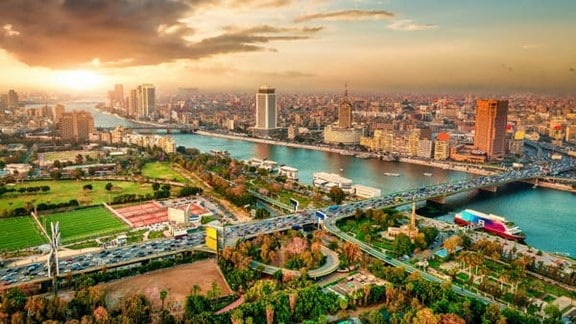
Cairo
Source: Al-Wafd newspaper
Dr. Ali Mohamed Al-Khouri
The global economy is going through a period full of challenges and major transformations, as countries seek to create flexible and sustainable development paths. Within this framework, Egypt has begun implementing a series of economic reforms and strategic initiatives with the aim of restoring macroeconomic stability and stimulating private sector-led growth.
One of the important steps recently is that the Egyptian authorities and the International Monetary Fund reached an agreement to increase the Fund’s facilities from about $3 billion to about $8 billion. These allocations will push towards consolidating the government’s commitment to comprehensive economic reforms, including adopting a more flexible exchange rate, tightening monetary and fiscal policies, and reducing infrastructure spending to combat inflation and maintain debt sustainability while creating an enabling environment for private sector activity.
Despite economic challenges and domestic structural issues, Egypt has made efforts to address its economic problems by allowing its currency to depreciate significantly since March 2022, raising interest rates, and introducing social relief measures to support vulnerable segments of its population.
In general, the economic scene in Egypt is still plagued by many complexities, and is characterized by long-term challenges such as the heavy external debt burden, currency fluctuations, and the large role played by state institutions in the economy, which is, as opinionators describe it, the link that discourages investment and undermines competition.
In line with the World Bank’s new country partnership framework for Egypt for the fiscal years 2023-2027, the strategy aims to support Egypt’s development agenda through three main results, which revolve around enhancing employment opportunities in the private sector, improving human capital outcomes, and increasing resilience in the country. Facing economic challenges and shocks. This comprehensive strategy includes improving the enabling environment for private investments, developing the quality of health and education services, and strengthening macroeconomic management and climate change mitigation measures.
For policy makers, it is necessary to continue and deepen structural reforms to strengthen the business environment, encourage competition and reduce state dominance of the economy, along with strengthening governance and transparency, especially with regard to state-owned enterprises, to build investor confidence and promote a level playing field for private sector participation. It is also necessary to prioritize investment budgets in human capital, including health and education, to support long-term economic growth and social cohesion. These axes must coincide with the expansion of social safety net programs to protect the most vulnerable population groups from the direct effects of economic adjustments and global economic shocks.
The success of the plans will depend on the country’s ability to confront immediate challenges, liberalize its economy, and harness the potential of youth and technological progress. The journey ahead, although full of challenges, brings many opportunities for a country on the cusp of redefining its role in the global economic arena.
| About | |
|---|---|
| Initiatives | |
| Knowledge | |
| Services | |
| Media Center | |
| Contact |